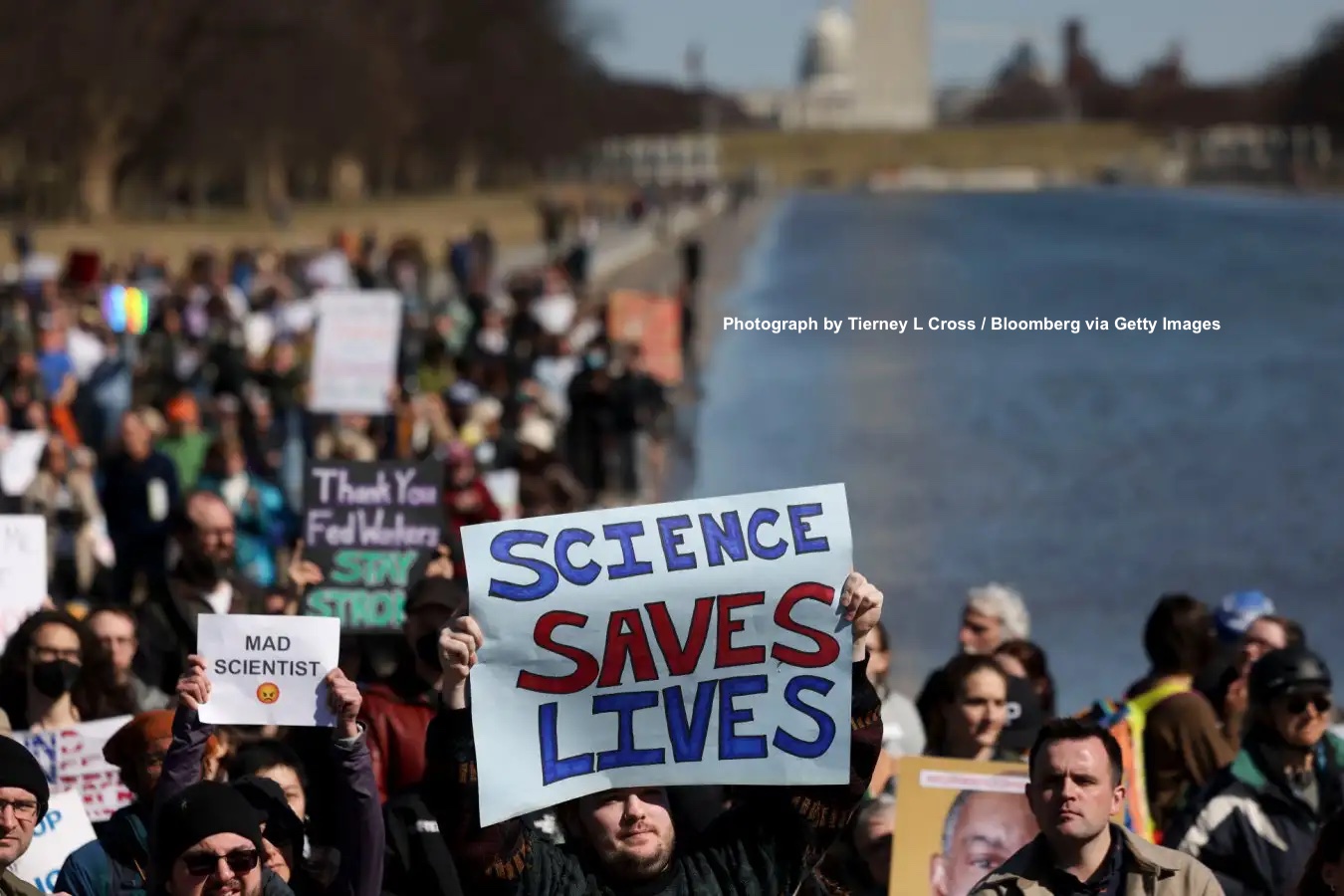
3 minute read
Charm City Science #7
The State of Science: Report from DC
Since the current administration took office, science in America has been in a state of emergency. Massive cuts at the NIH, the largest funder of biomedical research in the world, have left research institutions scrambling to figure out how to cover costs. Changes to government websites included the disappearance of essential datasets. Hundreds of grants have been abruptly terminated, and massive firings have left the NIH in chaos. At the same time, non-citizen researchers are having their visa’s revoked on the basis of their political beliefs - or for no apparent reason at all. This March, a major rally brought thousands to Washington DC to “Stand up for Science”. Andrew Eneim, who attended the rally, reports:
Under renewed attacks on science, academic freedom, and efforts to rectify historic inequities in our institutions, thousands rallied in Washington, DC and across the country on March 7th. Hundreds of JHU researchers joined colleagues and supporters at the main Stand Up for Science rally in DC, where they came together in protest of cuts to the NIH and NSF & restrictions on funding that censor scientists. For several hours, speakers ranging from scientists who had been fired for no reason to patients who have directly benefited from publicly funded scientific breakthroughs reminded attendees how critical publicly funded science is to human health, protecting the planet, and creating a better world.
One subliminal theme stuck out to me, though. Scientists need to do better, too. I had the honor of speaking at the march in DC and shared more explicitly how scientists need to do better. I mentioned that the myth of the “apolitical” scientist has done serious damage to the trust in science that we’re now facing politically motivated attacks. In truth, science is political because we have grossly inadequate systems in place that choose who gets access to doing research. Systems that favor the wealthy and well connected over the diversity that we need to do our best work. As I told the crowd, “business as usual is not good enough!”

These changes to how science is done will only get harder to implement with these attacks on academic freedom, on grant funding, and on DEI. We have to resist all of them, not try to hide and hope we will be spared. It’s incumbent on all scientists and non-scientists to get involved now to say that we need more investment in doing science and doing it equitably, not less. The cuts being made will reinforce the problem of science only being for the elite, which will stifle innovation and stall progress on addressing disease research. It’s not just about the grants. We need to be standing up for the communities that are under attack so they will stand up for us too. So don’t wait, get involved in an organization whether it is a union, an advocacy group, or in your neighborhood.
Andrew Eneim is a PhD. candidate in the Biochemistry, Cellular, and Molecular Biology program at Johns Hopkins School of Medicine, and a proud organizer with Teachers and Researchers United - UE Local 197 (TRU-UE), the Johns Hopkins University graduate workers union.


